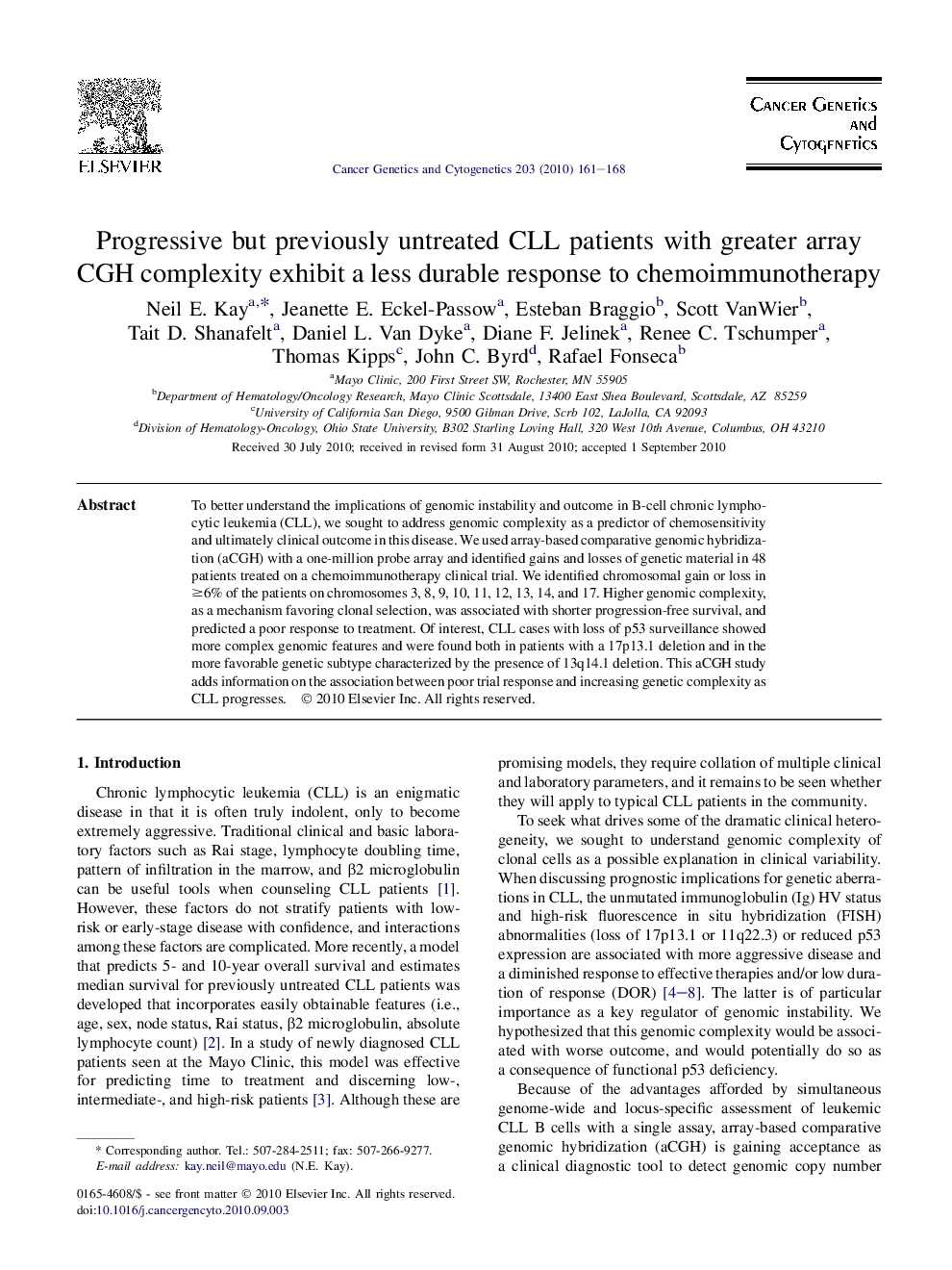| Article ID | Journal | Published Year | Pages | File Type |
|---|---|---|---|---|
| 2110551 | Cancer Genetics and Cytogenetics | 2010 | 8 Pages |
To better understand the implications of genomic instability and outcome in B-cell chronic lymphocytic leukemia (CLL), we sought to address genomic complexity as a predictor of chemosensitivity and ultimately clinical outcome in this disease. We used array-based comparative genomic hybridization (aCGH) with a one-million probe array and identified gains and losses of genetic material in 48 patients treated on a chemoimmunotherapy clinical trial. We identified chromosomal gain or loss in ≥6% of the patients on chromosomes 3, 8, 9, 10, 11, 12, 13, 14, and 17. Higher genomic complexity, as a mechanism favoring clonal selection, was associated with shorter progression-free survival, and predicted a poor response to treatment. Of interest, CLL cases with loss of p53 surveillance showed more complex genomic features and were found both in patients with a 17p13.1 deletion and in the more favorable genetic subtype characterized by the presence of 13q14.1 deletion. This aCGH study adds information on the association between poor trial response and increasing genetic complexity as CLL progresses.
